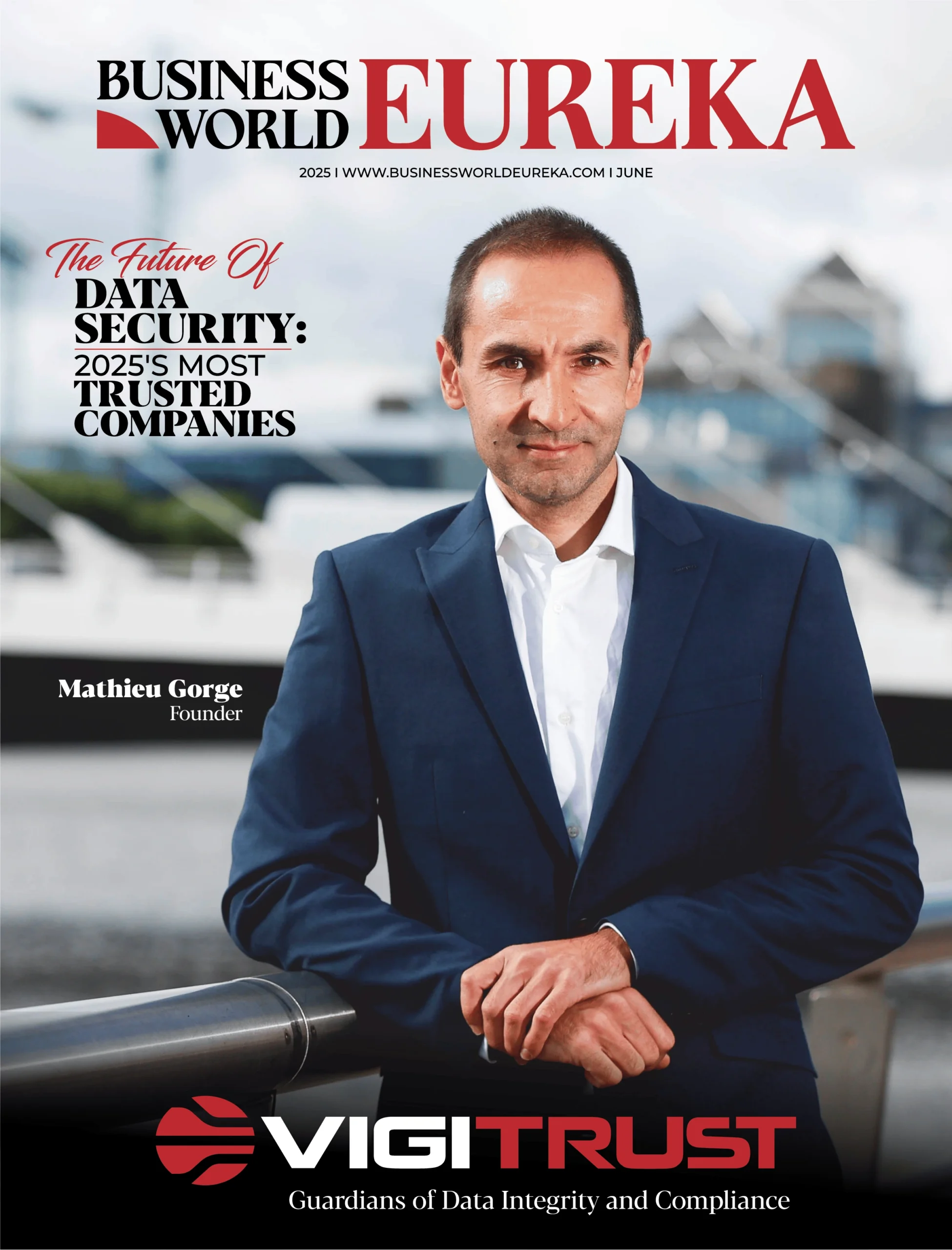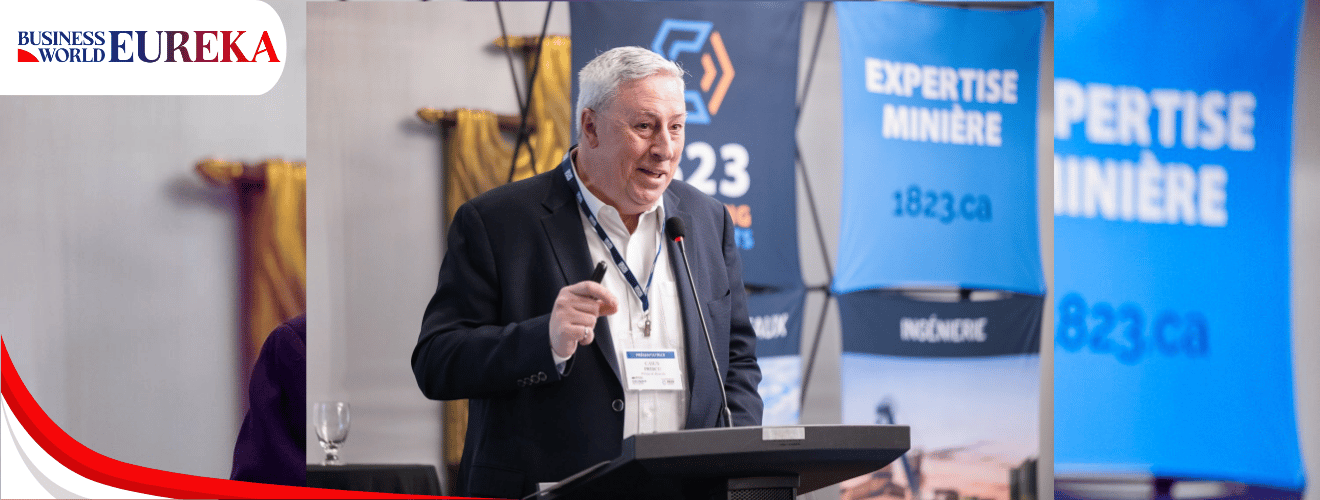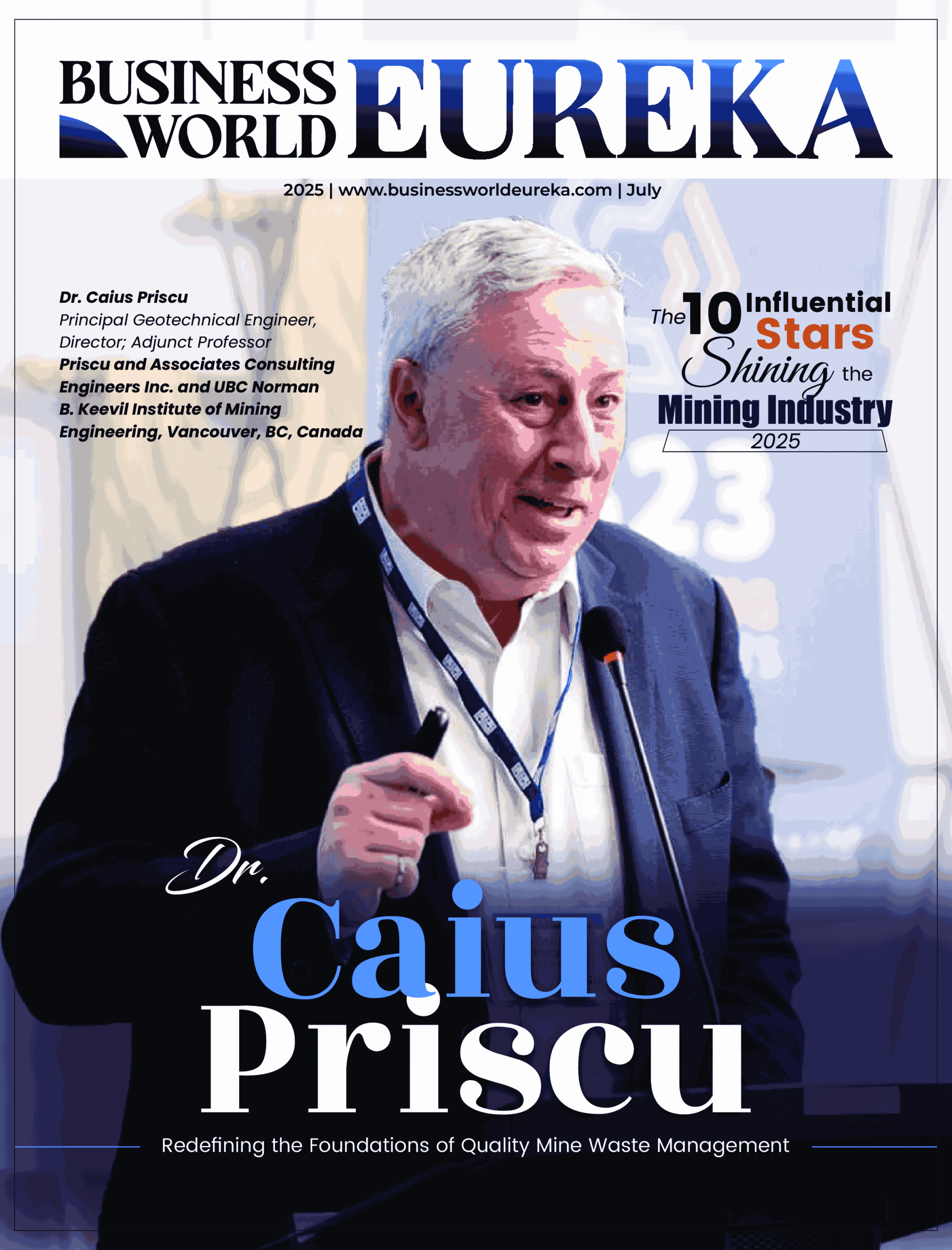Josselyne Herman-Saccio: Restoring Integrity to the Way Stories Are Told

Stories are the invisible threads that weave meaning into human experience. They shape perceptions, forge identities, and move entire societies forward—or hold them back. But the true power of a story doesn’t lie in its ability to persuade; it lies in its integrity. Ethical storytelling isn’t just about telling the truth—it’s about honoring it. It is the difference between manipulation and impact, between a narrative that deceives and one that enlightens. In a time when content is manufactured at an unimaginable scale, the responsibility of storytelling has never been greater. A story told without ethics may spread like wildfire, but only a story rooted in truth will stand the test of time.
Yet, despite the weight that storytelling carries, the field of communication is riddled with fractures. Misinformation has become currency, and artificial intelligence can fabricate narratives faster than facts can catch up. Organizations speak in polished statements while trust erodes beneath them. Authenticity is repackaged as a marketing trend rather than a guiding principle. Too many communicators focus on capturing attention rather than earning belief. The result? A world flooded with voices, yet starving for meaning.
This is where Josselyne Herman-Saccio stands apart. She is not just a communicator; she is a steward of truth. Her work goes beyond crafting messages—it builds trust, shapes movements, and restores integrity to the way stories are told.
Weaving Words into Impact
From an early age, Josselyne recognized the power of language and storytelling as tools for connection, transformation, and leadership. Drawn to communications for its ability to influence perspectives, create movements, and drive meaningful change, she embarked on a career that has spanned multiple industries. Josselyne’s journey began in traditional media, but over time, she expanded her expertise to coaching individuals on how to live the life of their dreams. Throughout her career, she has honed her skills in communication, branding, and ethical storytelling, making a lasting impact across sectors ranging from entertainment to corporate strategy and social advocacy.
Navigating the Crossroads of Storytelling, Technology, and Trust
Josselyne defines leadership in communications as a blend of responsibility, vision, clarity, and authenticity. According to Josselyne, a true leader in this field must be a visionary—capable of navigating complex narratives, adapting to technological advancements, and inspiring trust. She emphasizes that leadership in communications is not just about transmitting information but about empowering others to share their stories with integrity and empathy. Effective communicators, she believes, are also active listeners and thought partners who anticipate challenges and shape conversations that drive meaningful change.
Josselyne also highlights how the rise of AI, social media, and digital platforms has fundamentally reshaped communication in 2025. AI-powered tools now enable predictive analytics, sentiment analysis, and real-time engagement, allowing brands and individuals to connect with audiences in more personalized and data-driven ways. Social media continues to redefine storytelling, offering interactive and immersive experiences that engage users on deeper levels. However, Josselyne stresses that with these advancements comes the responsibility of maintaining authenticity, ensuring ethical AI use, and combating misinformation—challenges that require communicators to be more vigilant and intentional than ever before.
Guarding Truth in the Age of Misinformation
Josselyne emphasizes that the key principles of effective crisis communication are transparency, speed, and empathy. In an age where misinformation spreads rapidly, she highlights the importance of establishing a clear, unified message, providing real-time updates, and demonstrating genuine concern for affected stakeholders. According to Josselyne, organizations must proactively prepare for crises by developing a robust response framework and training leadership in effective, authentic communication to maintain trust and credibility.
When it comes to crafting compelling narratives, Josselyne believes that authenticity is the foundation of meaningful storytelling. She employs a strategy that blends data-driven insights with human-centric messaging, ensuring that communication resonates deeply with audiences. By understanding people’s needs, fears, and aspirations, she crafts messages that are both relatable and persuasive. Josselyne also prioritizes consistency across all platforms while remaining adaptable to audience feedback, ensuring that communication remains engaging, relevant, and impactful.
Addressing the challenge of ethical integrity in an era of misinformation and deepfakes, Josselyne stresses the need for vigilance, transparency, and an unwavering commitment to truth. She advocates for rigorous fact-checking, responsible AI implementation, and clear accountability measures in content creation. For Josselyne, ethics in communication is not just a professional obligation but a fundamental necessity for fostering trust in an increasingly complex media landscape.
Amplifying Every Voice
Josselyne underscores the vital role of inclusive communication in shaping a more equitable and diverse global conversation. She believes that true inclusivity ensures that diverse voices are not only heard but also respected and represented. According to Josselyne, inclusive communication is a powerful tool for dismantling biases, fostering cross-cultural understanding, and ensuring equitable access to information. By prioritizing inclusivity in messaging, language, and representation, she advocates for a communication landscape that reflects the real world as it is—diverse, complex, and interconnected.
Communication Beyond the Numbers
When it comes to measuring the success of a communication strategy, Josselyne emphasizes that true impact extends beyond traditional metrics like views or likes. While quantitative data remains important, she highlights the significance of qualitative insights such as audience sentiment, behavioral shifts, and long-term trust-building. For Josselyne, meaningful engagement is not about surface-level interactions but about fostering deeper connections and achieving strategic objectives that drive real-world change.
Guiding the Next Wave of Communicators
Offering advice to emerging professionals, Josselyne encourages them to stay curious, authentic, adaptable, and ethical. She stresses that the field of communications is constantly evolving, and the most successful professionals are those who embrace change while remaining rooted in integrity. She advises aspiring communicators to develop strong storytelling skills, cultivate meaningful relationships, and never underestimate the power of active listening. Above all, Josselyne urges them to use their voice responsibly and with purpose, reminding them that communication is not just a tool—it is a force capable of transforming the world.
Balancing Innovation and Authenticity
Josselyne envisions several key trends shaping the future of communications over the next five years. She predicts a heightened integration of AI-driven communication, where automation and predictive analytics will play a larger role in audience engagement. However, she also foresees a greater emphasis on ethical storytelling, as audiences become more discerning and demand authenticity from brands and public figures. Additionally, Josselyne anticipates a shift towards decentralized platforms, community-driven narratives, and transparency-focused branding, where trust and credibility will be at the core of effective communication strategies.
Discussing the impact of AI-driven communication tools, Josselyne acknowledges their ability to enhance personalization and efficiency in corporate messaging. These advancements allow businesses to engage with consumers in real time, creating highly tailored interactions. However, she stresses that while AI can streamline communication, the human touch remains irreplaceable. According to Josselyne, the challenge will be in striking the right balance—leveraging AI to enhance and expedite messaging while ensuring that communication remains authentic, empathetic, and human-centered.
Turning Crisis into Credibility
Reflecting on her career, Josselyne identifies one of her most defining moments as navigating a high-stakes crisis communication scenario where an organization’s reputation was at risk. By implementing a strategy centered on transparency, accountability, and real-time engagement, she and her team not only mitigated damage but also rebuilt trust with stakeholders. This experience reinforced her belief in the transformative power of effective, honest communication and its ability to shape public perception, restore credibility, and drive meaningful change.
-
04 Jul 2025 profileDr. Caius Priscu: Redefining the Foundations of Mine Waste Management
-
04 Jul 2025 magazinesThe 10 Influential Stars Shining the Mining Industry,2025
-
 27 Jun 2025 ArticleGrowthPixel Awarded "Fastest Growing Doctor Marketing Agency in 2025
27 Jun 2025 ArticleGrowthPixel Awarded "Fastest Growing Doctor Marketing Agency in 2025 -
 18 Jun 2025 ArticleTop 7 Doctor Marketing Agencies in India Trusted by Medical Professionals in 2025
18 Jun 2025 ArticleTop 7 Doctor Marketing Agencies in India Trusted by Medical Professionals in 2025 -
 29 May 2025 Digital Version2025's Most Trusted Companies Vigitrust digital version
29 May 2025 Digital Version2025's Most Trusted Companies Vigitrust digital version -
 29 May 2025 Digital VersionThe Journey of Richard Larson-digital edition
29 May 2025 Digital VersionThe Journey of Richard Larson-digital edition -
 28 May 2025 magazinesThe Future of Data Security: 2025's Most Trusted Companies
28 May 2025 magazinesThe Future of Data Security: 2025's Most Trusted Companies -
28 May 2025 UncategorizedVigiTrust: Guardians of Data Integrity and Compliance




